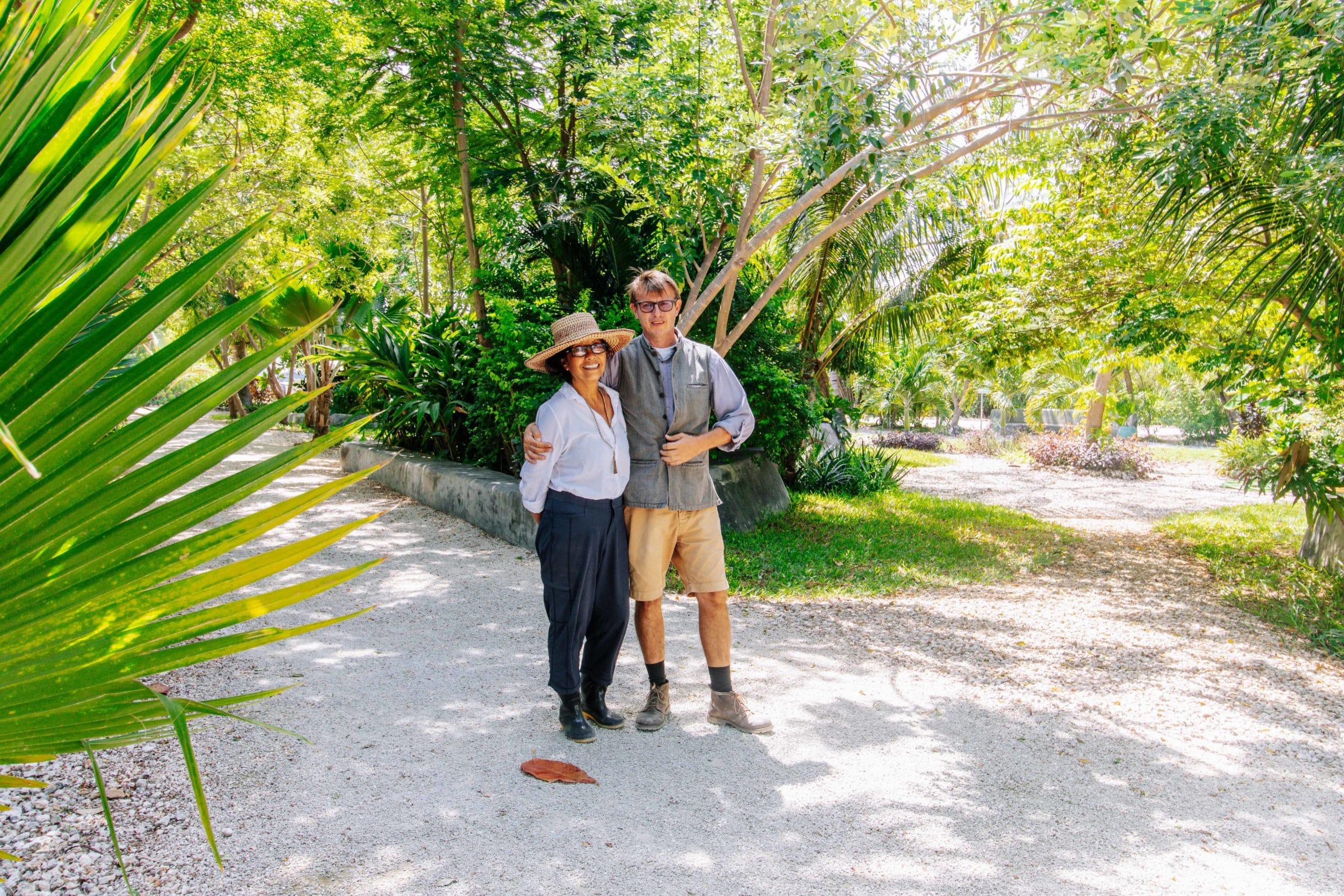
Africa’s first permaculture town exists in Zanzibar. The name: Fumba Town. The magic recipe: Do as nature would! That turned coral rock land into a lush green paradise, attracting homebuyers from 57 nations. What’s the secret? And could the whole world learn from it?
Residents living in Fumba Town have a lecture room right in their front garden. Just before sunset Franko Goehse has assembled about twenty neighbours around him, eagerly listening as he takes them for a ‘walk-around workshop’. Why was this bougainvillea planted there? Clearly: “Who wouldn’t like the colour?” And the breadfruit tree? Bernadette Kirsch, Goehse’s wife and partner in the green battle, knows the answer: ”It will produce food for the next 500 years.” And what about the palm trees along the seashore, gently swirling in the wind, just like in Miami and Cuba? “They are windbreakers”, explains Goehse, founder of Permaculture Design Company (PDC) in Zanzibar.
There are cities, and there are green cities. And there are dreadful developments, not only in Africa, when every heavy rain brings flooding, when people build villas but throw their garbage over the next fence. “This happens when nature and infrastructure are not being considered in urban planning”, says landscape planner Bernadette Kirsch. “Permaculture takes care of people and the environment at the same time.”
A town built on card boxes
“When we started Fumba Town and our Practical Permaculture Institute of Zanzibar (PPIZ) in 2015, we hired people for a job where the job description was unknown”, Franko Goehse, 51, remembers with a smile. Much of it was learning by doing. How do you create a green town? Goehse and his wife Bernadette carved the very foundation of Fumba Town practically out of nothing: “We crushed coral stone, shredded tons of bush, collected mountains of card boxes from Mlandege shopkeepers, spread it all out and simply waited one rainy season for the mixture to turn into compost”, recall the pioneers, aptly called “Mr. and Mrs. Green” by friends. Born in Germany, Goehse discovered and nurtured his love for nature at the foot of the Kilimanjaro as chef of a safari lodge before coming to Zanzibar.
Six years later he and his wife have trained 700 locals in gardening, composting, recycling, beekeeping, landscaping, even in carpentry and building with naturals materials such as Adobe. 25 employees at the green back-up centre make sure the new city from the drawing board breathes and grows in the right direction. New green ideas are being explored by the day: wooden houses for climate change adaption, an entire skating park made of earthbags. The eco-couple has successfully also transformed private and hotel properties into sustainable green havens, among them Kizikula Design Hotel, Jambiani Villas and the Aqua Resort near Matemwe.
Trees as super-coolers
What exactly makes a permaculture city?
In the long run, Fumba Town at the shore of the Indian Ocean, is meant to house 20,000 residents; several hundred houses and flats are already occupied - a role model of affordable modern living in Africa, a green investment for locals and foreigners alike. “It’s all about creating cycles of sustainability”, say Sebastian and Tobias Dietzold, the the chief developers of Fumba Town. Proudly the brothers noted: “Whenever a potential home buyer looks at our seaside town in Zanzibar, it’s often the permaculture idea sealing the deal.”